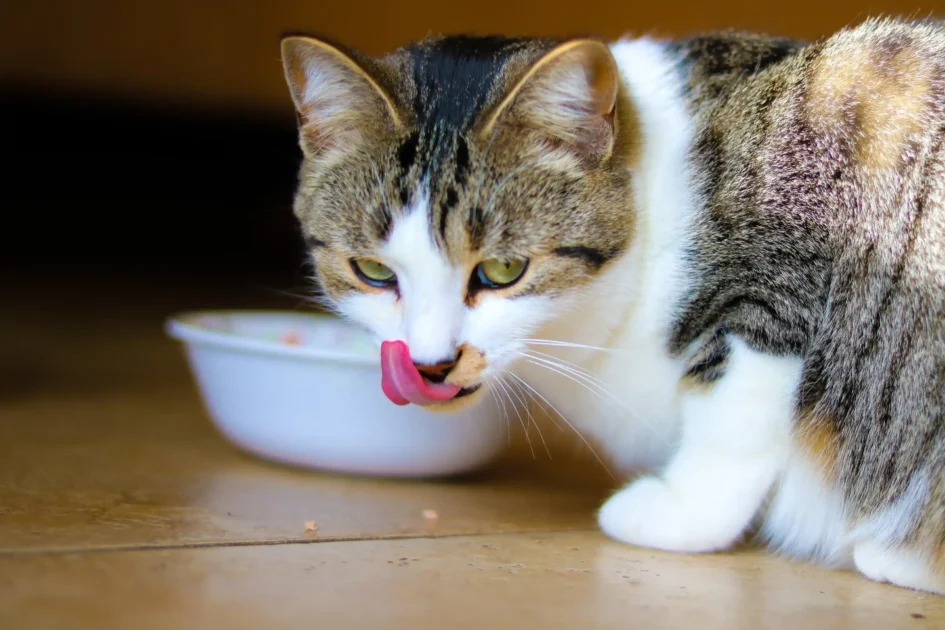As a cat owner, one of the most crucial decisions you make for your pet is choosing the right food. With so many options available in the market, it can be overwhelming and challenging to make the best choice for your feline friend. In this article, we will guide you through the essential factors to consider when selecting food and provide you with a comprehensive list of the best food options in the market.
Understanding Your Cat's Nutritional Needs
Cats are obligate carnivores, which means they require a diet that is rich in animal protein. Their nutritional requirements differ from other pets, and it's essential to ensure that their diet meets their specific needs. Some of the key nutrients that cats require include:
- Protein
- Fats
- Carbohydrates
- Vitamins
- Minerals
- Water
Types of Cat Food
There are several types of food available in the market, and each has its benefits and drawbacks. The most common types of cat food include:
- Dry
- Wet
- Semi-moist
- Raw
- Homemade
Ingredients to Look For
When choosing food, it's crucial to pay attention to the ingredients to ensure that your cat gets a balanced and healthy diet. Some of the ingredients to look for include:
- High-quality animal protein sources
- Carbohydrates such as whole grains, fruits, and vegetables
- Healthy fats such as omega-3 and omega-6 fatty acids
- Vitamins and minerals
- Probiotics
- Antioxidants
Ingredients to Avoid
Certain ingredients can be harmful or even toxic to cats, and it's crucial to avoid them when choosing cat food. Some of these ingredients include:
- Artificial preservatives
- Artificial flavours and colours
- Corn and soy
- By-products and fillers
- Carrageenan
- Ethoxyquin
Age-Specific
Cats have different nutritional requirements depending on their age, and it's crucial to choos food that caters to their specific needs. Some of the age-specific options include:
- Kitten food
- Adult cat
- Senior cat
Health-Specific
If your cat has specific health needs, such as weight management, digestive issues, or allergies, there are food options available that cater to these needs. Some of these health-specific cat food options include:
- Weight management
- Digestive care
- Urinary tract health
- Hypoallergenic
Choosing a Food Brand
When selecting a food brand, it's essential to do your research and choose a reputable brand that meets your cat's nutritional needs. Look for brands that:
- Use high-quality ingredients
- Don't use harmful additives or preservatives
- Have undergone rigorous testing and quality control measures
- Offer a variety of food options
Feeding Your Cat
Once you've chosen the best food for your pet, it's crucial to ensure that you're feeding them the right amount and in the right way. Some feeding tips to keep in mind include:
- Follow the feeding guidelines on the food label
- Monitor your cat's weight and adjust the feeding amount accordingly
- Offer your cat fresh water at all times
- Feed your cat at regular intervals
- Don't overfeed your cat
Frequently Asked Questions about Cat Food
How often should I feed my cat?
It depends on your cat's age, weight, and activity level. Adult cats should typically be fed two meals a day, while kittens should be fed more frequently. Consult with your veterinarian to determine the appropriate feeding schedule for your cat.
Should I feed my cat wet or dry food?
Both wet and dry cat food can be healthy options, but wet food may provide more moisture and be easier for some cats to digest. Consider your cat's preferences and nutritional needs when choosing between wet and dry food.
Can I feed my cat homemade cat food?
Homemade cat food can be a healthy option if prepared correctly and balanced with all the necessary nutrients. However, it's important to consult with a veterinarian or veterinary nutritionist to ensure that your cat's homemade diet meets all of its nutritional needs.
How do I know if my cat has food allergies?
Common signs of food allergies in cats include itching, scratching, vomiting, diarrhoea, and ear infections. Consult with your veterinarian if you suspect that your cat may have a food allergy.
What should I do if my cat refuses to eat the new cat food I purchased?
It's important to introduce new food slowly and gradually to avoid upsetting your cat's digestive system. If your cat refuses to eat the new food, try mixing it with the old one or warming it up to make it more appealing. If your cat continues to refuse it, consult with your veterinarian for further advice.
Conclusion
Choosing the best food can be overwhelming, but by considering your cat's nutritional needs, understanding the different types of food available, and choosing a reputable brand that meets your cat's specific needs, you can make an informed decision. Remember to pay attention to the ingredients and avoid harmful additives, and follow feeding guidelines to ensure that your cat is getting the right amount of food. By choosing the right cat food, you can help your cat lead a healthy and happy life.
This is not a sponsored post, in fact just a guideline from MostReviewed.co.uk
